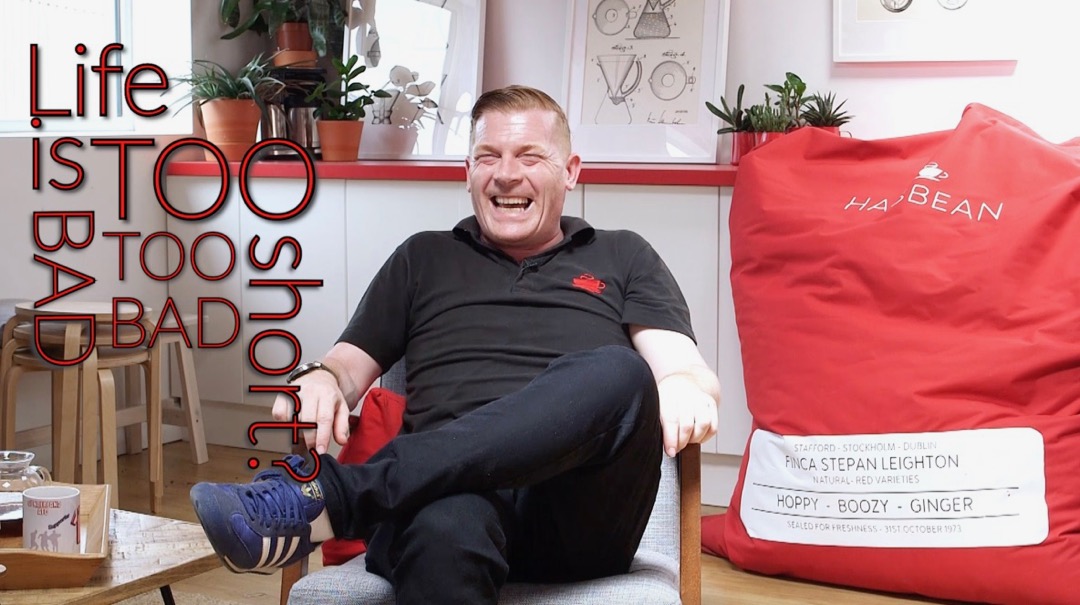
I've been working with Alejandro Martinez since way, way back in 2008, and in that time our relationship has gone from strictly professional to Alé being one of my closest friends. He became involved in coffee in 2008 as he had just relocated to El Salvador from New York, where he'd been working as a city banker. With his first son on the way and the hustle and bustle of New York no place to bring up a family, the draw of home and El Salvador was just far too strong to ignore.
While looking for work in El Salvador, Ale decided to help his father with some of his business interests and investments. His father had inherited several coffee farms from his grandfather and was unsure what to do with them. One of the investments pricked Ale’s interest, and this was a farm called Finca Argentina. The reason it really got Ale's attention was that he saw the farm once yielded loads of coffee but was producing a fraction of its old productivity. His father gave him permission to see what could be done to make the farm successful again.
Ale found out the farm had been classified for a Q auction back in 2005. Thinking there may be a specialty buyer out there, he and his cousin (who lived in London) went about sending samples to coffee roasters anywhere they could. One of those samples arrived at Has Bean Towers, just like a lot of other samples do; unusually, I liked the coffee, and the rest – as they say – is history.
Since then Finca Argentina has gone from strength to strength, but not without bumps in the road. In 2013 they suffered the worst harvest on record, with only 70 bags harvested due to a massive issue with leaf rust. But with investment and hard work, they have also bought a neighbouring farm, and the future is amazingly bright for Ale, his father, his family and Finca Argentina.
The farm is based in the Apaneca-Ilamtepec mountain range, and is near the town of Turin in the Ahuachapán department. Sixteen people work on the farm during the non-picking season, maintaining and tending to the plants. This number of workers goes up to 50 people during the picking period. The altitude of the farm is 1,300 m.a.s.l.
This coffee is a washed process Catimor, which perhaps you may raise an eyebrow at because the Catimor varietal can be a little on the controversial side, but after many years of delicious Catimors from Finca Argentina I expect better from you! Catimor is a cross between Timor coffee (resistant to leaf rust – a big problem at the moment in Central America) and Caturra coffee. It was created in Portugal, of all places, in 1959.
Catimor grows and produces fruit very quickly and has a very high yield. It's pest resistant and leaf rust resistant, and it will grow well at much lower altitudes – better, in fact, in comparison to many other commercial varietals. Sounds perfect, but problems come in the cup quality. Timor has its feet in the Robusta species (hence all these lovely benefits), but Robusta is not known for being tasty.
This is one of the finest examples of this varietal I have ever seen, and it came about because of Alé wanting to experiment with different varietals on different parts of the farm, and 1 of those experiments involved Catimor. It's a great example of tasting a coffee with your taste buds and not letting what you think it might taste like get in the way.
In the cup there's dark chocolate, but also some raspberry and a little hint of plum. There's a delicate black pepper to the finish, which is joined as it cools by a sweet orange coming to the fore.
- Country: El Salvador
- District: Ahuachapán
- Municipality: Ahuachapán
- Nearest city: Turin
- Farm: Finca Argentina
- Owner: Alejandro Martinez
- Altitude: 1,300 m.a.s.l.
- Varietal: Catimor
- Processing method: Washed
- Drying method: Patios
Clean cup: (1–8): 6
Sweetness: (1–8): 6.5
Acidity: (1–8): 6
Mouthfeel: (1–8): 6.5
Flavour: (1–8): 6.5
Aftertaste: (1–8): 6.5
Balance: (1–8): 6.5
Overall: (1–8): 6
Correction: (+36): +36
Total: (max. 100): 86.5
Roasting Information
Medium dark – this one takes plenty of heat in the gap between cracks, which seems to go on and on, but don't be afraid to push it right to the edge of second.
"Quick Look" Guide
Dark chocolate, raspberry, plum, black pepper, orange.
More Episodes
Create your
podcast in
minutes
- Full-featured podcast site
- Unlimited storage and bandwidth
- Comprehensive podcast stats
- Distribute to Apple Podcasts, Spotify, and more
- Make money with your podcast
It is Free
- Privacy Policy
- Cookie Policy
- Terms of Use
- Consent Preferences
- Copyright © 2015-2024 Podbean.com







